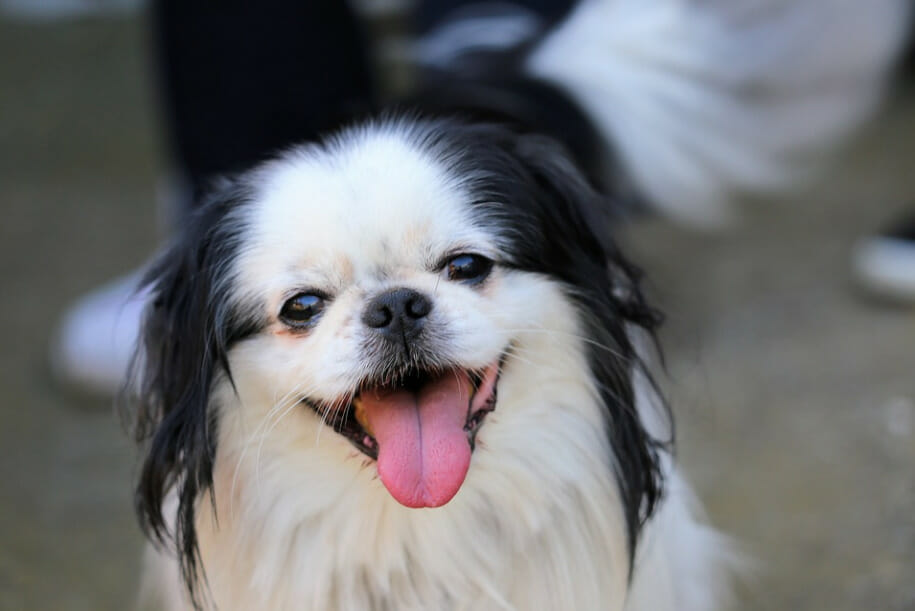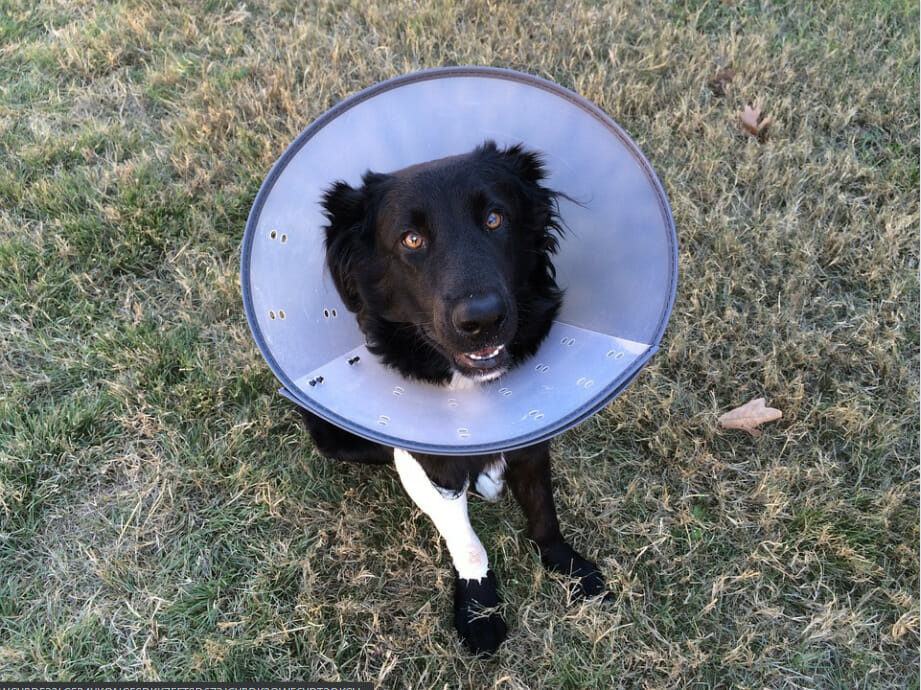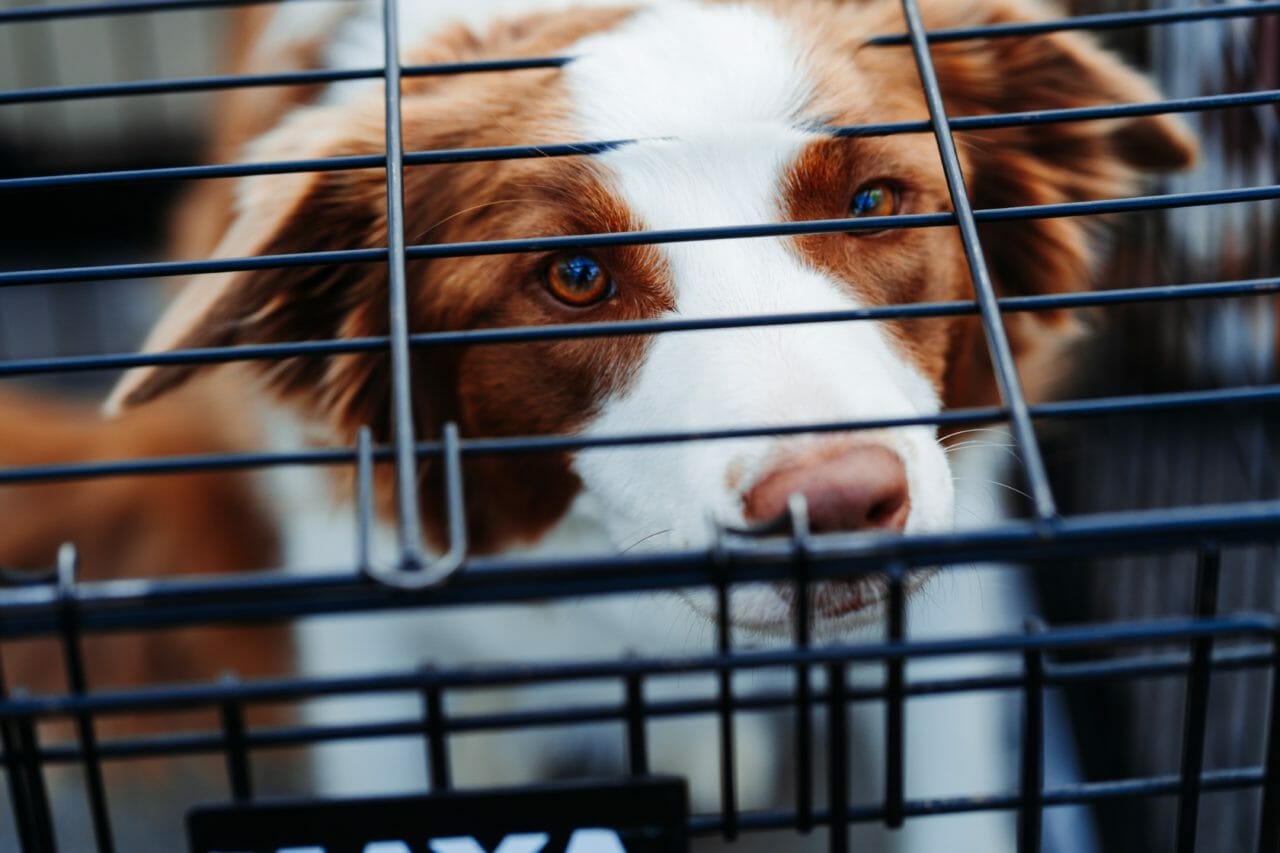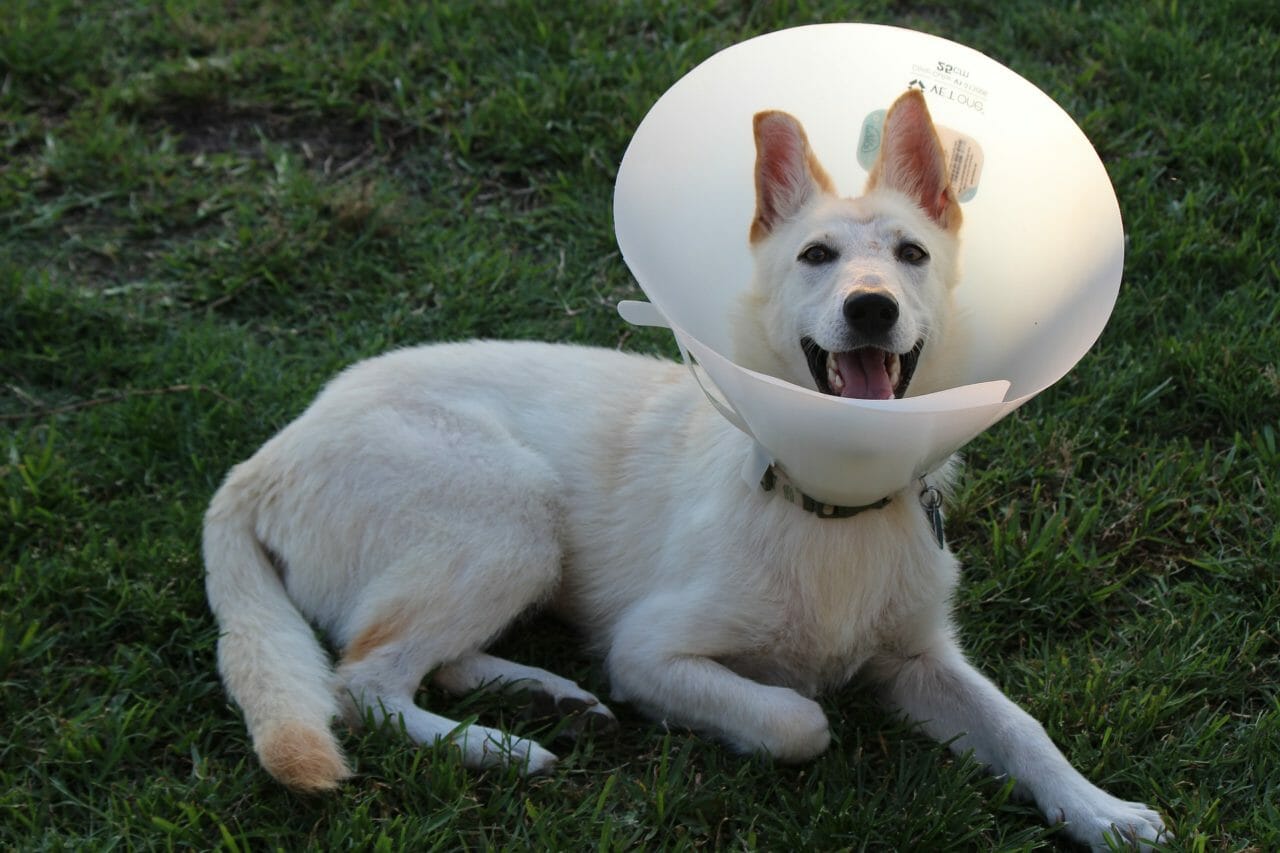Preventing serious infections from forming will make your dog’s day.
Playful dogs will usually get their fair share of cuts and bruises over the course of their lives. But one place to keep an eye out for more serious issues is your dog’s chin, specifically sores that can appear.
In this blog post, RehabPet.com will give you a better understanding of what a sore under your dog’s chin can be but also what you should look for if it is something more serious and what you can do to prevent sores from happening.
What Is a Chin Sore?
A chin sore is a lesion that can form on your dog’s lower jawline and chin. It’s important to note that not all sores will look the same. Some may be large or small, open or closed, deep or shallow, crusty or raw.
The sores can also be folliculitis or furunculosis. These are both commonly referred to as dog acne but cause two different types of sores to appear on your dog’s chin.
- Folliculitis is an infection of the hair follicles that can cause red, inflamed pimples to form.
- Furunculosis is a more severe infection that causes the infected hair follicles to fill with pus, then burst, further spreading the infection.
What Causes Sores Under Your Dog’s Chin?
There are a number of different things that cause sores to form under your dog’s chin:
Allergies
A common cause is contact dermatitis.
This type of allergic reaction can happen when your dog’s skin comes into contact with something they’re allergic to. It can cause red, inflamed, itchy skin which often leads to your dog licking or scratching the affected area – further irritating their skin and causing sores to form.
Infections
As we mentioned earlier, there are two types of common infections that can cause sores to form under your dog’s chin — folliculitis and furunculosis.
Stomatitis is another type. This inflammation of the mucous membranes in the mouth can also cause sores which often spread to the chin.
Trauma
If your dog’s chin hits a hard surface, it can cause sores or cuts to form. This is especially common in dogs that like to play fetch or tug-of-war as they may accidentally hit their chins on things like trees, fences, or concrete.
Fleas
Fleas are tiny, wingless insects that live off the blood of animals. If your dog has fleas, they may also have bites around their chin area which can cause sores to form.
Excessive Scratching
If your dog is licking or scratching their chin excessively, it can also cause sores to form. This is usually due to an underlying issue like allergies, fleas, or stress.
Short Haired Breeds
Dogs with short hair are more prone to developing chin sores as their hair doesn’t provide the same protection as long-haired breeds. So if your pup is an English Bulldog, Great Dane, or Boxer, keep a keen eye on their chin.
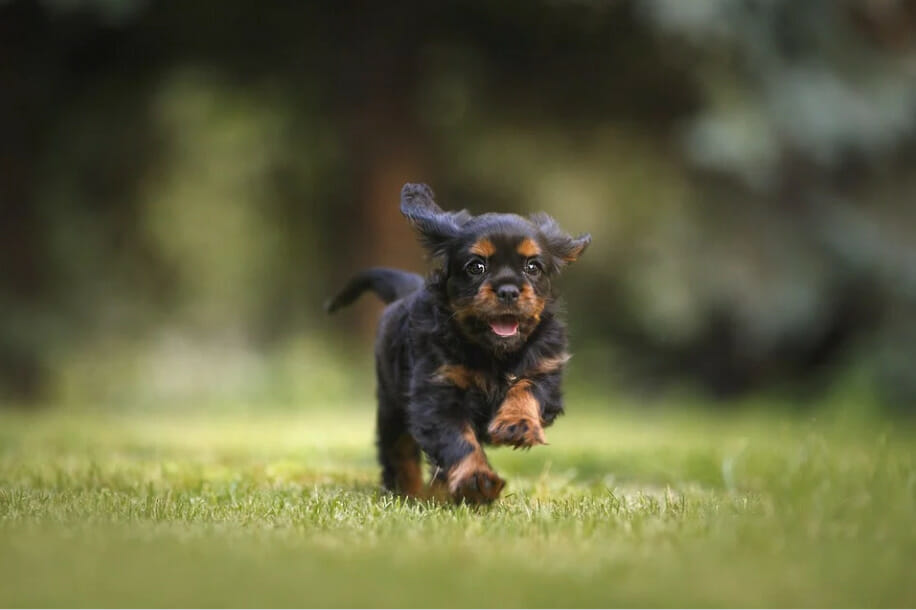
Symptoms of Sores Under Your Dog’s Chin
While it might be easy to say that all you need to do when looking for symptoms of sores is to do a physical exam of your dog’s chin, this is usually when serious infections can start to form.
If you want to catch the sores before they turn into something more serious, here are some things to look for:
- Your dog is licking or scratching their chin excessively
- Red, inflamed skin on your pup’s chin
- Hairless spots on the dog’s chin
- Bleeding
- Pimples that last more than a couple of days
- Noticeable pus discharge coming from your dog’s chin
Treatments for Sores Under Your Dog’s Chin
If you notice that your dog has any of the symptoms listed above for more than a few days, it’s important to take them to see the vet.
Your vet will take a physical look at your dog’s chin and compare their findings to their previous medical records.
The most common ways for a vet to test are:
- A skin scraping will involve your vet using a small metal scraper to collect a sample of your dog’s skin. This will then be placed on a slide and examined under the microscope for any signs of parasites, bacteria, or fungi.
- A hair pluck is when your vet uses a set of tweezers to pluck a few hairs from your dog’s chin. This is usually done if the vet suspects a fungal infection. The hair will then be placed on a slide and examined under the microscope.
Once your vet makes a diagnosis, they will be able to start your dog on the appropriate treatment plan. Regular treatment plans for sores usually involve:
- Antibiotics: If the sores are caused by an infection
- Corticosteroids: To help reduce inflammation and itching
- Medicated shampoo: To help soothe your dog’s skin
- Topicals: To help heal the sores
After applying anything to your dog’s chin, it’s important you let it dry and keep the area clean to prevent further infection.
In some cases, your vet may also recommend that you use a cone collar to prevent your dog from licking or scratching their chin. This is usually only recommended for short periods of time as it can be uncomfortable for your dog.
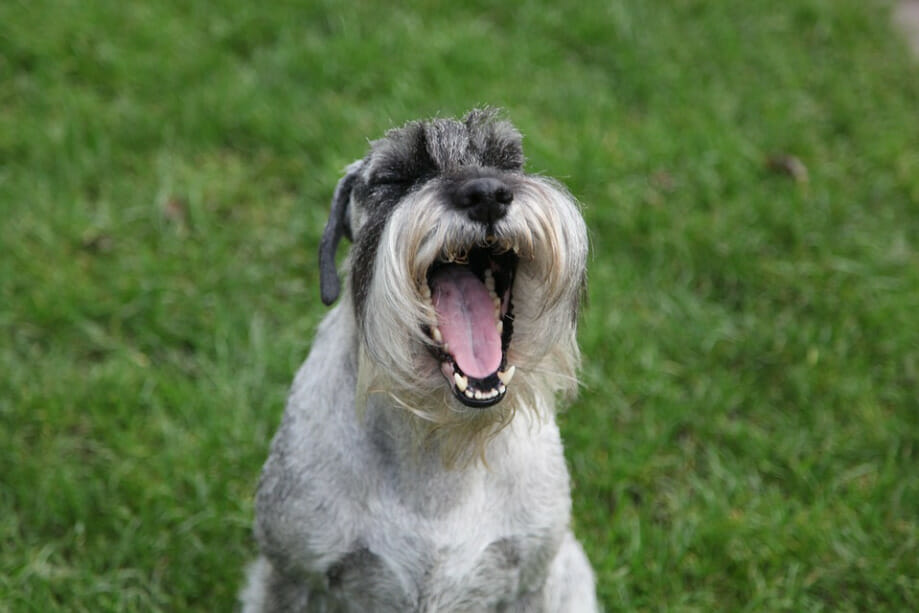
Preventing Sores Under Your Dog’s Chin
The best way to prevent sores from forming under your dog’s chin is to keep their area clean and free of any foreign objects. Giving your dog’s chin a wipe with a warm soaked cloth at the end of every day will ensure that any dirt, bacteria, or parasites are removed before they have a chance to cause an infection.
It’s also important to regularly check your dog for fleas and ticks as these can cause sores to form. If you live in an area with a lot of fleas, you may want to consider using a monthly preventative treatment.
A healthy diet can also help your dog’s skin and fur stay healthy and prevent sores from forming. This means making sure they’re getting all the necessary vitamins, minerals, and fatty acids they need.
Final Thoughts
Sores under your dog’s chin can be a nuisance, but with the right treatment, they shouldn’t cause any long-term problems. If you notice your dog excessively licking or scratching their chin, make sure to take them to see the vet so they can get started on the road to recovery.
Preventing sores from forming in the first place is always the best course of action and it will keep your dog happy for years to come.
